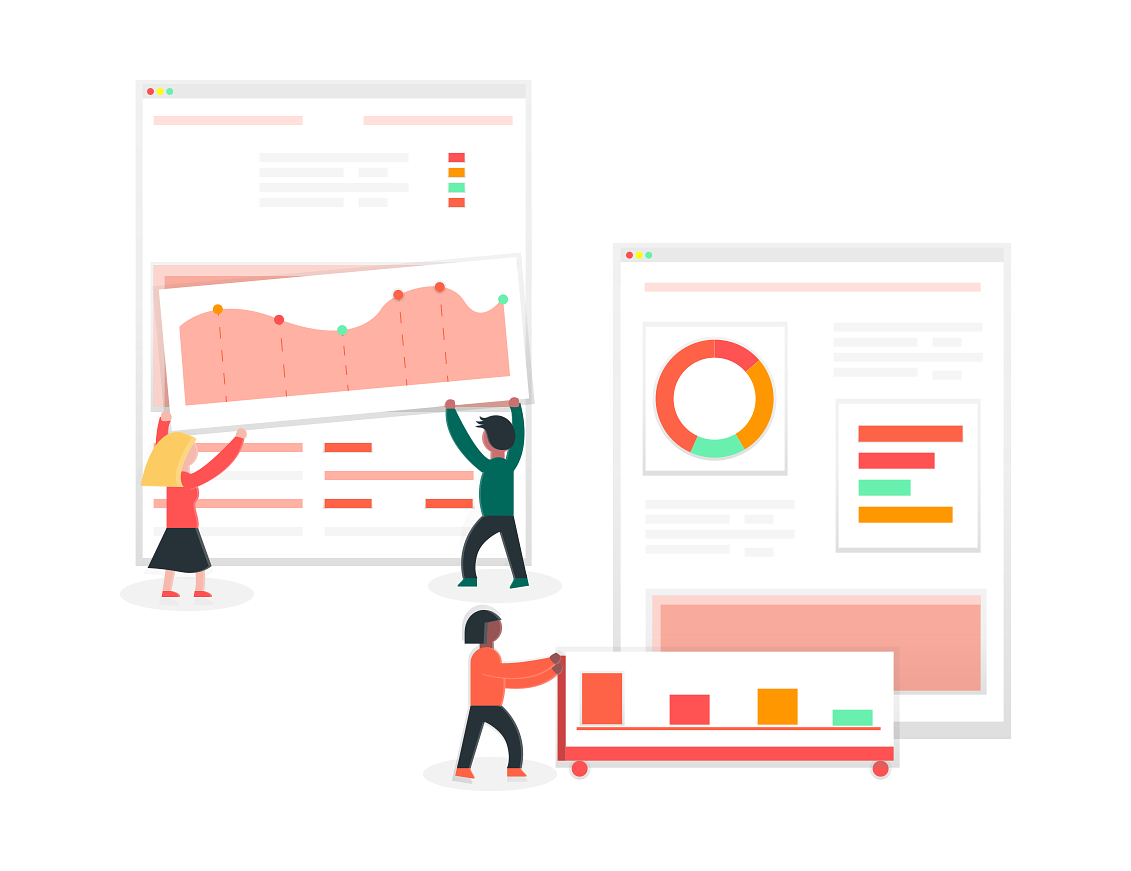Today’s leading marketers know that data-driven insights are marketing gold. Gone is the old approach of working off assumptions or gut feelings. Today, marketers are beginning to recognize the importance of relying on sound customer data. But according to a recent study from Google, fewer than 40 percent of marketers actually use consumer research to drive decisions.
With vast amounts of data more accessible than ever, it’s quite surprising that more marketers aren’t using it to their benefit. In recent years, data has become a crucial technological tool for many businesses. For marketers, data has the power to make marketing campaigns far more impactful. As businesses of all sizes continuously strive to improve campaign performance and generate greater customer value, data can provide the competitive edge that they need.
If you’ve yet to become a data-driven marketer, keep reading to learn how it can help you make smarter marketing decisions.
Table of Contents
What is data-driven marketing
Data-driven marketing refers to strategies built on insights pulled from the analysis of big data, collected through consumer interactions and engagements, to form predictions about future behaviors. It involves understanding the data a business owns and how to organize, analyze and apply it to maximize the value it extracts from marketing spending.
Big data is a major component of data-driven marketing. It refers to the enormous, rapidly expanding, varied, and often unstructured sets of digitized data that are created on a daily basis. Until recently, usable data was limited to structured spreadsheets and databases. Anything that wasn’t formatted in a unified manner was deemed difficult to work with and was often ignored. Today’s advances in data storage and analytics mean that businesses can capture, store and assess many types of data, including photos, videos, audio recordings, written text, and sensor data.
With big data, marketers can take information from a number of different sources and analyze it to drive smart decision-making. Decisions supported by massive amounts of data enable businesses to anticipate needs, mitigate risk, and deliver more relevant products and personalized services. From the beginning to the end of the decision-making process, big data ensures that all decisions are well-informed.
Customer data can be sourced from just about anywhere. Marketers can assess sales transactions stored in their company’s Customer Relationship Management (CRM) or Enterprise Resource Planning (ERP) systems, customer interactions with customer service representatives, online surveys, and social listening, just to name a few methods. A marketing team can blend both internal customer data and external consumer data to arrive at the most well-rounded insights.
Where data can help you succeed
Increase speed to market
Big data provides marketers with the speed and efficiency they need to create new marketing campaigns. Just a few years ago, a business would have gathered information, run analytics, and unearthed information that would be used for future decisions, today that business can identify insights for immediate decisions. Businesses can work faster and with greater agility, giving them a greater competitive edge. Big data can find correlations in different data sets much quicker than a human can, so marketers can bring cutting-edge campaigns to market faster. In turn, marketers can adapt campaigns to emerging trends or current events, creating content that is both timely and relevant. At the same time, utilizing data minimizes the doubt marketers might have when making strategic decisions, relying less on feeling and more on evidence.
Tailor content to consumer segments
Utilizing data allows marketers to gain more information about consumer preferences, which leads to more personalized digital and print campaigns. In fact, 79 percent of consumers said they are only likely to engage with a brand using coupons or other offers if those promotions are directly tied to how they have interacted with the brand previously. In order to properly engage customers, it’s more important than ever to personalize campaigns. With big data, marketers can tailor ads to an extremely specific target demographic, featuring products or services that are the most appealing to that group of people based on prior behavior. For example, Netflix tailors its recommended show and movies based on an analysis of previous customer actions. By using data to suggest material, Netflix increases the propensity that users to enjoy its service and continue their subscriptions over time. These capabilities are powered by big data, which allows businesses to find trends in qualitative data sets.
Provide accurate performance metrics
Marketers can use data to measure the effectiveness of a campaign. New analytical tools, powered by big data’s robust information, allow marketers to garner more accurate and insightful information regarding any given marketing tactic. For example, after a sales promotion, marketers can use internal customer data to analyze the promotion’s impact on average dollar sales, average units per transaction, or other sales metrics. They can compare this data to reports on other types of sales promotions to indicate which method is most effective for maximizing sales dollars. Furthermore, companies can compare internal reports to those of industry norms. Utilizing data to measure success gives businesses more definitive and certain results than before.
Data is the new gold
By utilizing data-driven marketing, businesses will be able to adapt to the ever-changing media and economic environments, while grounding their content, strategies, and ideas with analytics and research. Not only is there plenty of potential for marketers to take advantage of data right now, but we’re likely to see a future in which insights pulled from big data will be critical to a business’s success.
This is a guest post by Amanda Peterson. She is a software engineer by day and a contributor to Enlightened Digital by night. A lover of all things tech, Amanda enjoys writing about upcoming technologies and businesses. Her experiences until now led to her current passion project of getting women interested in technology and tech-related jobs.

Thanks for sharing this information!!
You’re welcome, Matt.